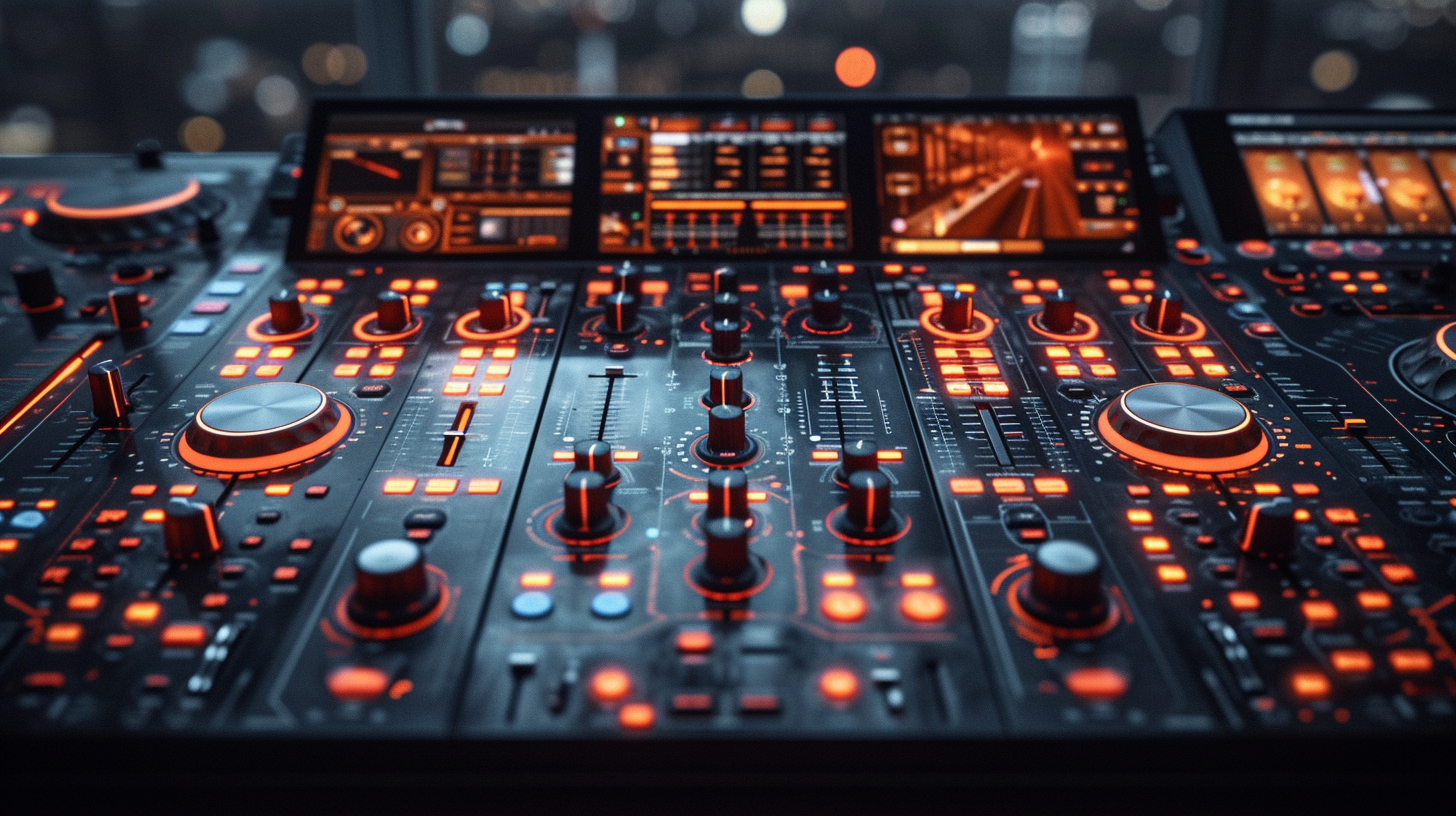Do you know the key differences between DJ controllers and mixers?
DJ controllers and mixers serve distinct roles with unique advantages that impact DJing portability, software integration, modular capabilities, and analog vs digital workflows.
Let’s explore the distinctions in detail so you can determine what gear best suits your DJing needs.
What is the Difference Between DJ Controller And Mixer?
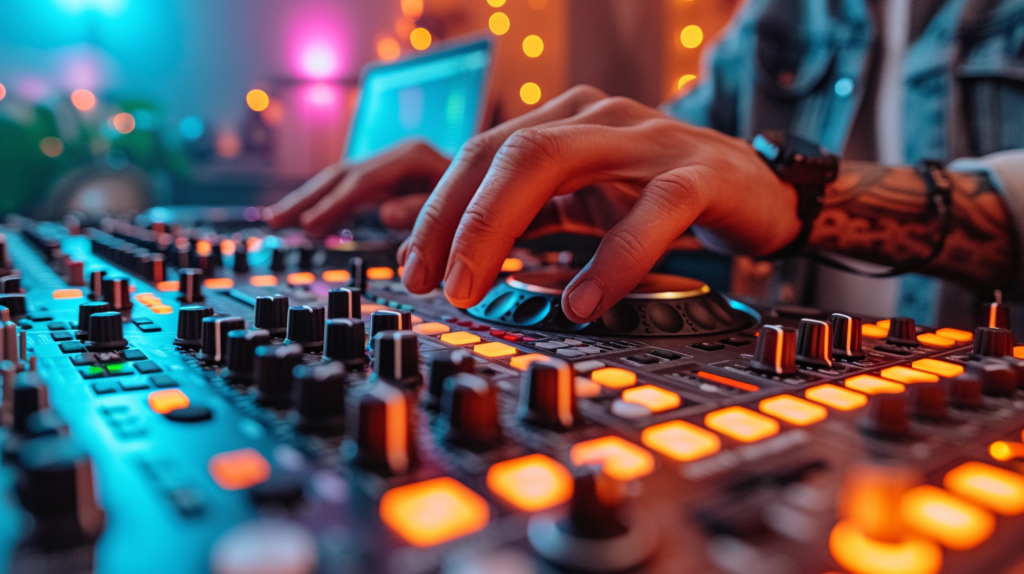
DJ controllers and DJ mixers are different devices used by DJs when performing. A controller is an integrated digital unit while a mixer is a standalone analog module. We’ll analyze the key differences below, but in short – controllers offer software integration while mixers provide hardware flexibility. Now let’s explore the distinctions more deeply.
What Is A Dj Controller?
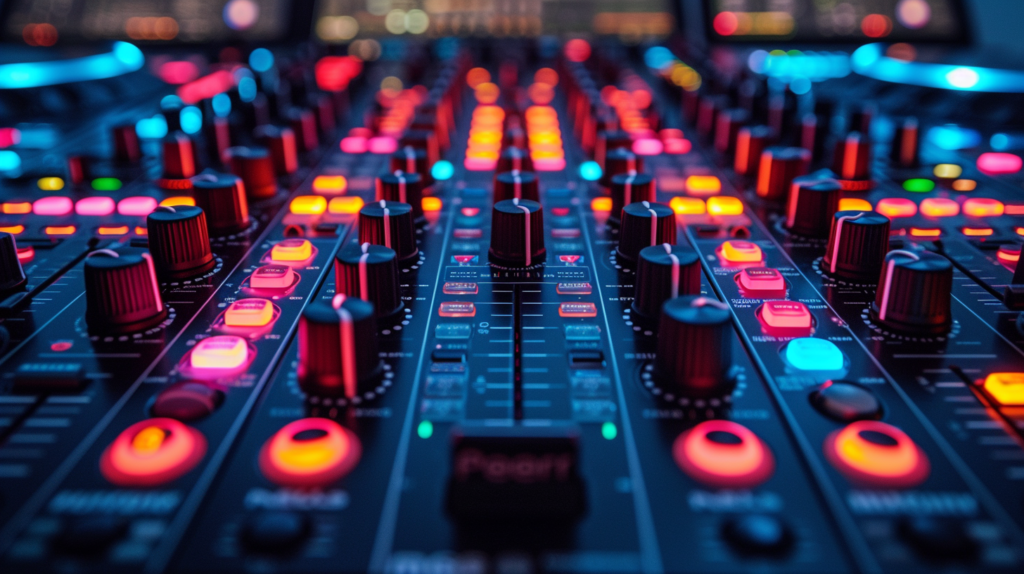
A DJ controller is an all-in-one unit that combines a mixer, audio interface, and MIDI controller for DJing. It allows DJs to mix music and apply effects using buttons, knobs, pads, and jog wheels that are built into the unit. DJ controllers often include dedicated sections to control different features like cue points, loops, samples, and more. They are designed specifically for DJing and music performance.
DJ controllers rely on DJ software running on a laptop to access music libraries and enable advanced functions. By connecting the controller via USB and loading DJ software like Serato or Traktor, the DJ can use the controller to manipulate the audio files loaded on the software. This allows for techniques like beatmatching, scratching, looping, applying effects, and more. Without being connected to laptop software, a DJ controller would not be able to function as a standalone mixer.
What Is A Dj Mixer?
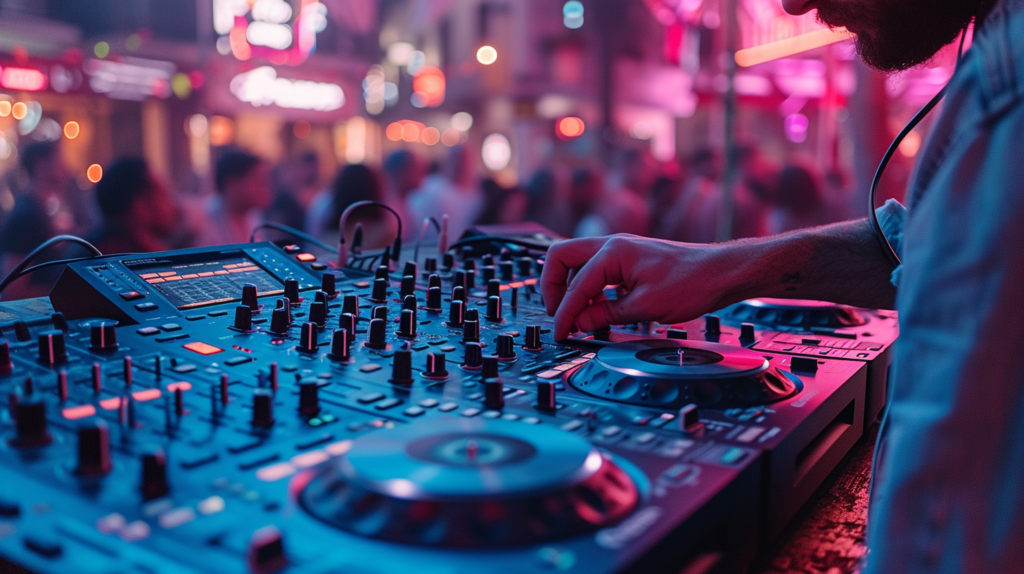
A DJ mixer is a standalone unit for mixing audio sources like turntables, CDJs, and media players. It has input channels with gain and EQ controls to manage the incoming audio signals. DJ mixers include a crossfader to transition between channels and may also have effects like filters, reverbs, echos built-in. However, a mixer does not contain any media players or MIDI controls within the unit itself.
DJ mixers are meant to be combined with separate media players like turntables or CDJs in a modular DJ setup. By using the controls on each media device and then managing the signals on the mixer, DJs can mix performances. This offers more flexibility for DJs who want to use different combinations of media players in their workflows. DJ mixers originated for analog DJing with turntables but work just as well with digital sources.
Key Differences Between Controllers And Mixers
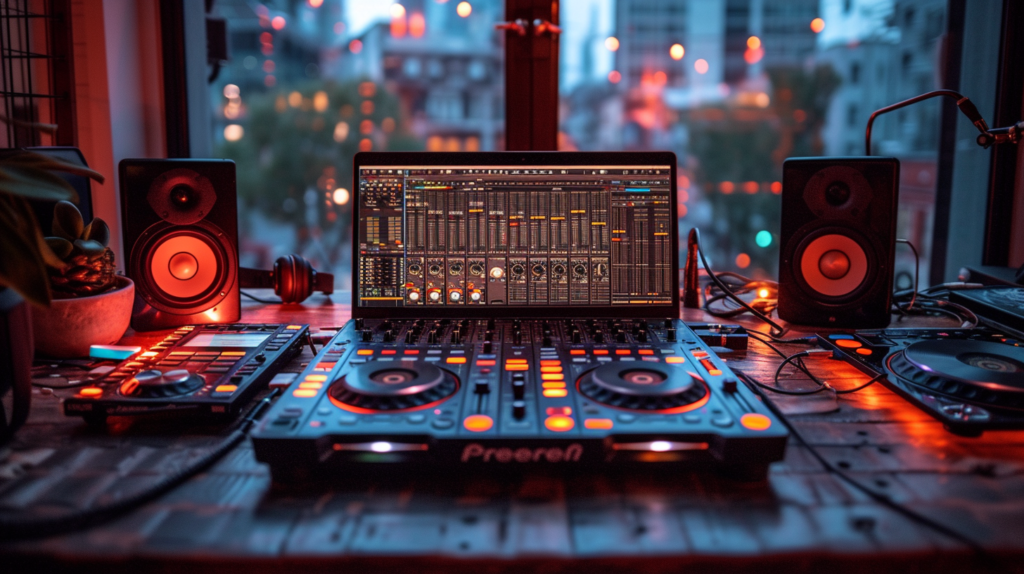
There are several key differences that distinguish DJ controllers and DJ mixers:
Controllers Require Laptops, Mixers Can Work Independently
The most fundamental difference is that controllers require a laptop and DJ software to operate, while mixers can work independently on their own. DJ controllers are designed to unlock features, effects, library management in software. Without being connected to a computer, controllers would only have the capabilities of a basic mixer.
On the other hand, DJ mixers do all their processing within the standalone hardware unit. Mixers can be connected together with media players in flexible combinations to mix audio and transition between sources. While DJ software unlocks more creative options, mixers allow DJs to mix music simply by managing the analog signals between players.
Controllers Have More Controls And Dj Features
DJ controllers tend to have more controls, options, and features that are optimized for digital DJing techniques. This includes pads for triggering cues and samples, touch strips for scratching, parameter knobs for software effects, and displays for library browsing. These controls unlock capabilities through the software that hardware mixers lack.
Mixers have a more basic control surface since they are focused on channel mixing rather than advanced creative functions. Mixers may include some on-board effects or filters but have fewer controls since they are not MIDI mappable to software. The simple interface does make them easy to learn for beginners compared to complex controllers however.
Modular Versus Integrated Setups
When it comes to connectivity with other gear, controllers employ an integrated setup while mixers use a modular one. Controllers combine a sound card, mixer, and MIDI controls in a single unit designed specifically for the DJ software. Everything is synced together as one integrated system.
Mixers are built for flexibility with other components like turntables, CDJs, synthesizers etc. DJs can combine mixers with any media players they choose in different combinations. This modular approach comes from traditional analog DJing workflows. While controllers offer tighter integration, mixers allow customizable configurations.
Digital Versus Analog Origins
Finally, DJ controllers and mixers come from different origins. Controllers were designed first and foremost for digital DJing with laptop software. They aimed to give DJs tactile control over software functions. The jog wheels, buttons, and faders emulate analog components but ultimately manipulate audio and data in the software.
DJ mixers originated as analog devices for managing audio signals from hardware players like turntables. While they now work with digital sources, the core mixer controls and concepts derive from analog workflows. Mixers maintain a purely hardware signal path even when handling audio from digital sources. This analog approach contrasts with controllers focus on digital control.
Choosing Between Controllers Or Mixers
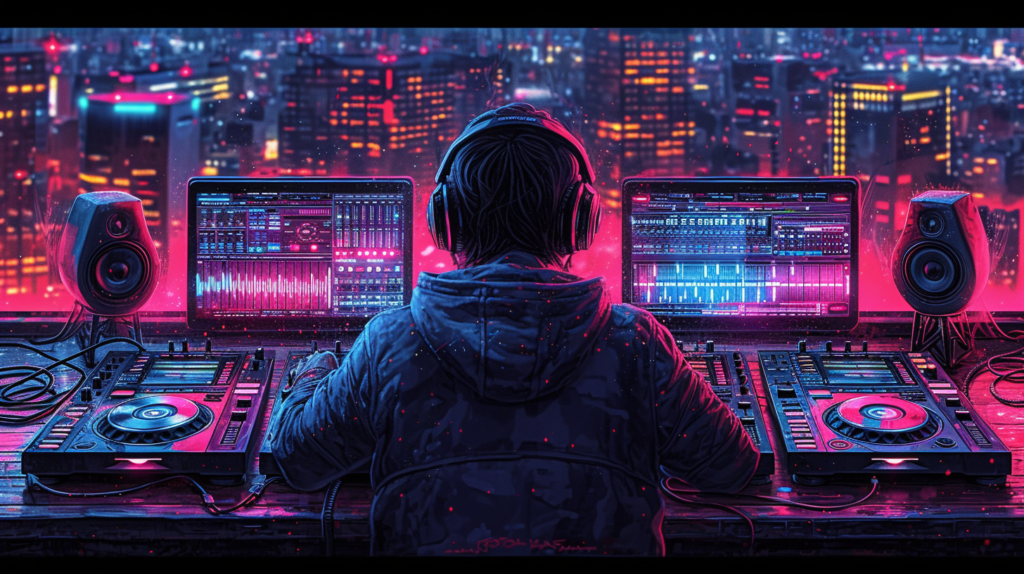
For amateur and beginner DJs, an all-in-one controller may provide the easiest entry point into mixing music. Controllers simplify music management, effects, transitions, and playback into a single integrated unit. The main disadvantage is the need for a laptop connected in order to DJ. Relying entirely on software has some reliability risks compared to standalone hardware.
For professional DJs playing live shows, the flexibility of a standalone mixer may be preferred. Using CDJs or turntables with a mixer provides backup player options in case of computer failures. The modular approach also allows tailoring combinations suited exactly to the DJs preferences. However, managing multiple devices requires more gear and setup.
Many DJs choose to use a hybrid solution of a controller combined with a hardware mixer. This provides both the expandability of a mixer and the advanced features of DJ software accessible from the controller. However there is increased complexity in syncing the controller software and external audio from the mixer/players. Cost also adds up when combining multiple pieces of gear.
Ultimately the choice between controller, mixer, or hybrid setup comes down to the style, techniques, and reliability needs of each DJ. The type of events, budget, music genres, and performance workflows all factor into the decision making process. As technology progresses more hybrid options are becoming available as controllers add mixer inputs and mixers add digital connectivity. DJ gear is now more modular and customizable than ever to suit individual preferences.
There are good arguments on multiple sides of this debate from different perspectives.
Conclusion
In conclusion, the main differences between DJ controllers and mixers come down to portability, software integration, modular capabilities, and analog vs digital origins. Controllers offer an all-in-one solution for digital DJing but rely on laptops. Mixers provide standalone operation and flexibility to work with various other gear in modular setups. Many DJs now use hybrid systems to get the best of both worlds. There are good arguments on all sides – the needs of each individual DJ dictate what combination works best for their workflow and style.
